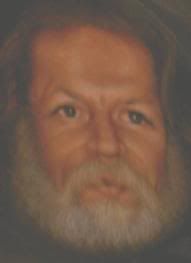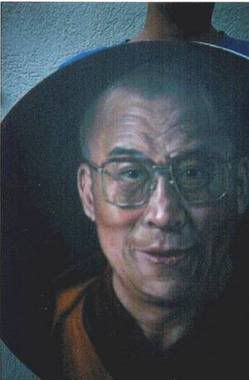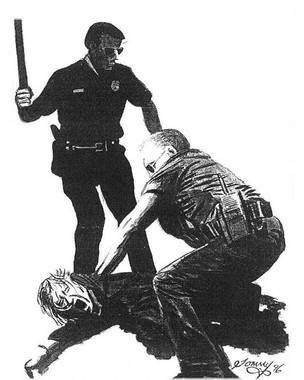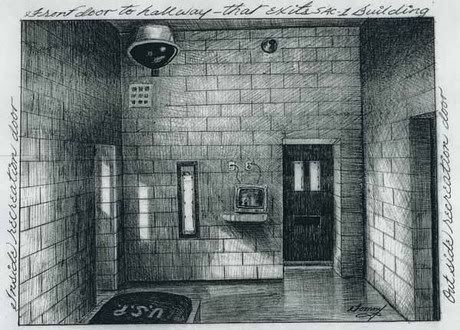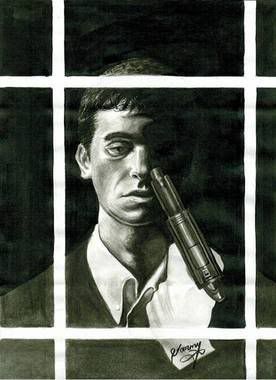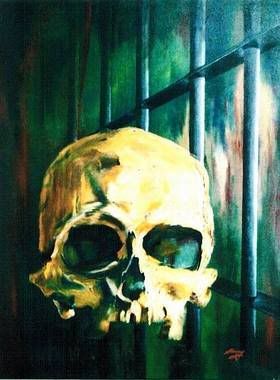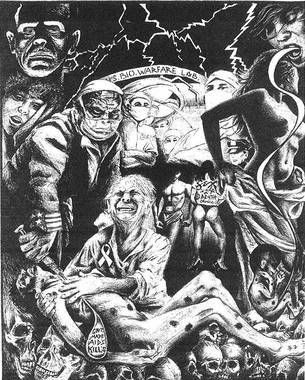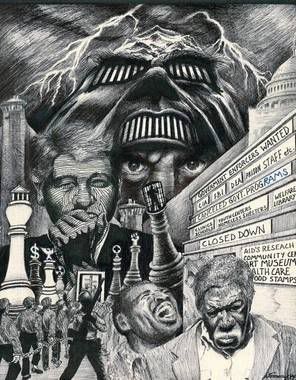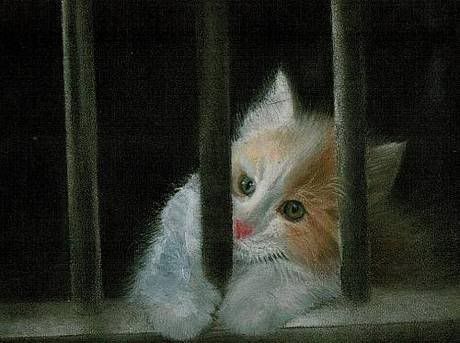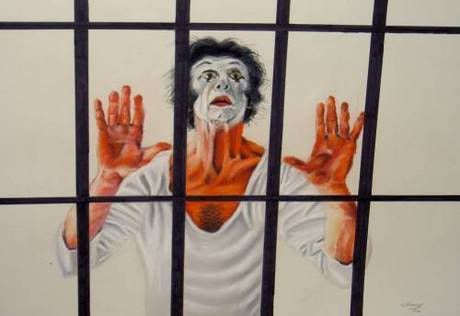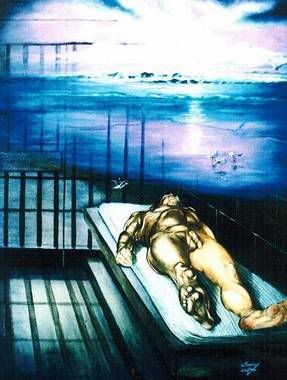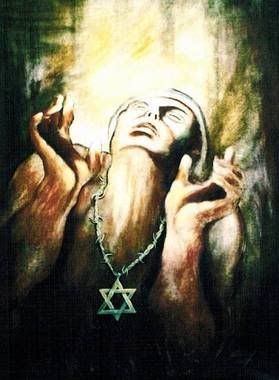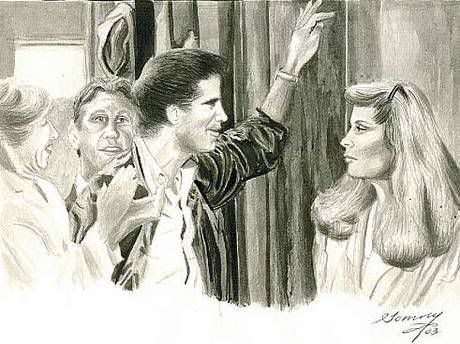NY Times reports:
Congress approved landmark legislation today that opens the door for a new era on Wall Street in which commercial banks, securities houses and insurers will find it easier and cheaper to enter one another's businesses.
The measure, considered by many the most important banking legislation in 66 years, was approved in the Senate by a vote of 90 to 8 and in the House tonight by 362 to 57. The bill will now be sent to the president, who is expected to sign it, aides said. It would become one of the most significant achievements this year by the White House and the Republicans leading the 106th Congress.
''Today Congress voted to update the rules that have governed financial services since the Great Depression and replace them with a system for the 21st century,'' Treasury Secretary Lawrence H. Summers said. ''This historic legislation will better enable American companies to compete in the new economy.''
The decision to repeal the Glass-Steagall Act of 1933 provoked dire warnings from a handful of dissenters that the deregulation of Wall Street would someday wreak havoc on the nation's financial system. The original idea behind Glass-Steagall was that separation between bankers and brokers would reduce the potential conflicts of interest that were thought to have contributed to the speculative stock frenzy before the Depression.
Today's action followed a rich Congressional debate about the history of finance in America in this century, the causes of the banking crisis of the 1930's, the globalization of banking and the future of the nation's economy.
Administration officials and many Republicans and Democrats said the measure would save consumers billions of dollars and was necessary to keep up with trends in both domestic and international banking. Some institutions, like Citigroup, already have banking, insurance and securities arms but could have been forced to divest their insurance underwriting under existing law. Many foreign banks already enjoy the ability to enter the securities and insurance industries.
''The world changes, and we have to change with it,'' said Senator Phil Gramm of Texas, who wrote the law that will bear his name along with the two other main Republican sponsors, Representative Jim Leach of Iowa and Representative Thomas J. Bliley Jr. of Virginia. ''We have a new century coming, and we have an opportunity to dominate that century the same way we dominated this century. Glass-Steagall, in the midst of the Great Depression, came at a time when the thinking was that the government was the answer. In this era of economic prosperity, we have decided that freedom is the answer.''
In the House debate, Mr. Leach said, ''This is a historic day. The landscape for delivery of financial services will now surely shift.''
But consumer groups and civil rights advocates criticized the legislation for being a sop to the nation's biggest financial institutions. They say that it fails to protect the privacy interests of consumers and community lending standards for the disadvantaged and that it will create more problems than it solves.
The opponents of the measure gloomily predicted that by unshackling banks and enabling them to move more freely into new kinds of financial activities, the new law could lead to an economic crisis down the road when the marketplace is no longer growing briskly.
''I think we will look back in 10 years' time and say we should not have done this but we did because we forgot the lessons of the past, and that that which is true in the 1930's is true in 2010,'' said Senator Byron L. Dorgan, Democrat of North Dakota. ''I wasn't around during the 1930's or the debate over Glass-Steagall. But I was here in the early 1980's when it was decided to allow the expansion of savings and loans. We have now decided in the name of modernization to forget the lessons of the past, of safety and of soundness.''
Senator Paul Wellstone, Democrat of Minnesota, said that Congress had ''seemed determined to unlearn the lessons from our past mistakes.''
''Scores of banks failed in the Great Depression as a result of unsound banking practices, and their failure only deepened the crisis,'' Mr. Wellstone said. ''Glass-Steagall was intended to protect our financial system by insulating commercial banking from other forms of risk. It was one of several stabilizers designed to keep a similar tragedy from recurring. Now Congress is about to repeal that economic stabilizer without putting any comparable safeguard in its place.''
Supporters of the legislation rejected those arguments. They responded that historians and economists have concluded that the Glass-Steagall Act was not the correct response to the banking crisis because it was the failure of the Federal Reserve in carrying out monetary policy, not speculation in the stock market, that caused the collapse of 11,000 banks. If anything, the supporters said, the new law will give financial companies the ability to diversify and therefore reduce their risks. The new law, they said, will also give regulators new tools to supervise shaky institutions.
''The concerns that we will have a meltdown like 1929 are dramatically overblown,'' said Senator Bob Kerrey, Democrat of Nebraska.
Others said the legislation was essential for the future leadership of the American banking system.
''If we don't pass this bill, we could find London or Frankfurt or years down the road Shanghai becoming the financial capital of the world,'' said Senator Charles E. Schumer, Democrat of New York. ''There are many reasons for this bill, but first and foremost is to ensure that U.S. financial firms remain competitive.''
But other lawmakers criticized the provisions of the legislation aimed at discouraging community groups from pressing banks to make more loans to the disadvantaged. Representative Maxine Waters, Democrat of California, said during the House debate that the legislation was ''mean-spirited in the way it had tried to undermine the Community Reinvestment Act.'' And Representative Barney Frank, Democrat of Massachusetts, said it was ironic that while the legislation was deregulating financial services, it had begun a new system of onerous regulation on community advocates.
Many experts predict that, even though the legislation has been trailing market trends that have begun to see the cross-ownership of banks, securities firms and insurers, the new law is certain to lead to a wave of large financial mergers.
The White House has estimated the legislation could save consumers as much as $18 billion a year as new financial conglomerates gain economies of scale and cut costs.
Other experts have disputed those estimates as overly optimistic, and said that the bulk of any profits seen from the deregulation of financial services would be returned not to customers but to shareholders.
These are some of the key provisions of the legislation:
*Banks will be able to affiliate with insurance companies and securities concerns with far fewer restrictions than in the past.
*The legislation preserves the regulatory structure in Washington and gives the Federal Reserve and the Office of Comptroller of the Currency roles in regulating new financial conglomerates. The Securities and Exchange Commission will oversee securities operations at any bank, and the states will continue to regulate insurance.
*It will be more difficult for industrial companies to control a bank. The measure closes a loophole that had permitted a number of commercial enterprises to open savings associations known as unitary thrifts.
One Republican Senator, Richard C. Shelby of Alabama, voted against the legislation. He was joined by seven Democrats: Barbara Boxer of California, Richard H. Bryan of Nevada, Russell D. Feingold of Wisconsin, Tom Harkin of Iowa, Barbara A. Mikulski of Maryland, Mr. Dorgan and Mr. Wellstone.
In the House, 155 Democrats and 207 Republicans voted for the measure, while 51 Democrats, 5 Republicans and 1 independent opposed it. Fifteen members did not vote.
Tucked away in the legislation is a provision that some experts today warned could cost insurance policyholders as much as $50 billion. The provision would allow mutual insurance companies to move to other states to avoid payments they would otherwise owe policyholders as they reorganize their corporate structure. Many states, including New York and New Jersey, do not allow such relocations without the consent of the insurer's domicile state. But the legislation before Congress would pre-empt the states.
Both the Metropolitan Life Insurance Company and the Prudential Life Insurance Company are in the midst of reorganizing into stock-based corporations that are requiring them to pay billions of dollars to policyholders from years of accumulated surplus. In exchange, the policyholders give up their ownership in the mutual insurance company.
The legislation would permit any mutual insurance company to avoid making surplus payments to policyholders by simply moving to states with more permissive laws and setting up a hybrid corporate structure known as a mutual holding company.
The provision was inserted by Representative Bliley at the urging of a trade association. It attracted little opposition because it was attached to a provision that forbids insurers from discriminating against domestic-violence victims.
In a letter sent to Congress this week, Mr. Summers said that the provision ''could allow insurance companies to avoid state law protecting policyholders, enriching insiders at the expense of consumers.''
Friday, November 5, 1999
| [+/-] |
Congress Passes Wide-Ranging Bill Easing Bank Laws |
Monday, August 16, 1999
Friday, February 12, 1999
| [+/-] |
Senator Sam Brownback: "I Vote To Remove Bill Clinton From Office For Perjury" |
Following is a statement from the Senate's closed deliberations on the articles of impeachment against President Clinton, excerpts of which senators were allowed to publish in the Congressional Record for Friday, February 12, 1999:
I find that William Jefferson Clinton did commit perjury and obstruct justice; that these offenses rise to the level of `high Crimes and Misdemeanors;' that William Jefferson Clinton should be convicted under the Articles of Impeachment; and that he must be removed as President of the United States.
This is a sad chapter in our nation's long and illustrious history. A man of extraordinary talent took a mistake and turned it into a tragedy. William Jefferson Clinton is no ordinary man. Gifted and charismatic, brilliant and refined, he took raw ability and focus and turned it into a Presidency. Such is the stuff of story books and heroes. Sadly for this tale, the hero had a habit he would not break, and, when it called him back to darkness, he sought to hide it at all cost. And there the tragedy occurred.
President Clinton repeatedly chose to lie and obstruct justice rather than tell the truth and comply with court orders throughout this ordeal. By his words and deeds he chose to place himself above the law. By his words and deeds he has undermined the rule of law in America to the great harm of this nation. By his own words and deeds, he has undermined the truth-finding function of the judiciary, at great harm to that branch of our government. By his words and deeds, he had done great harm to the notions of honesty and integrity that form the underpinnings of this great republic.
The following represents the specific facts upon which I find William Jefferson Clinton is guilty of perjury before a Federal Grand Jury and obstruction of justice, and must be removed as the President of the United States:
ARTICLE I--PERJURY BEFORE A FEDERAL GRAND JURY
In his conduct while President of the United States, William Jefferson Clinton, in violation of his constitutional oath faithfully to execute the office of President of the United States and, to the best of his ability, preserve, protect, and defend the Constitution of the United States, and in violation of his constitutional duty to take care that the laws be faithfully executed, has willfully corrupted and manipulated the judicial process of the United States for his personal gain and exoneration, impeding the administration of justice, in that:
On August 17, 1998, William Jefferson Clinton swore to tell the truth, the whole truth, and nothing but the truth before a Federal grand jury of the United States. Contrary to that oath, William Jefferson Clinton willfully provided perjurious, false and misleading testimony to the grand jury concerning the nature and details of his relationship with a subordinate Government employee:
A. Testimony that conflicts with Ms. Lewinsky's account of the relationship:
Ms. Lewinsky testified as to the extent of her sexual relationship with President Clinton, and her statements were corroborated by numerous individuals with whom she contemporaneously shared the details of her encounters with the President, including two professionals. Her testimony indicated direct contact by the President with certain areas of her body. The conduct described by Ms. Lewinsky clearly falls within the definition of sexual relations as President Clinton understood the term to be defined in the Paula Jones case and during his grand jury testimony.
In his prepared statement to the grand jury, President Clinton stated that the sexual encounters between he and Ms. Lewinsky `did not constitute sexual relations as I understood that term to be defined at my January 17th, 1998 deposition.' President Clinton acknowledged that the type of activity described by Ms. Lewinsky constituted sexual relations as he understood the term to be defined during the Paula Jones' deposition: `I understood the definition to be limited to, to physical contact with those areas of the bodies with the specific intent to arouse or gratify.' However, during questioning under oath, President Clinton repeatedly denied engaging in the activities described by Ms. Lewinsky.
President Clinton was even asked by a grand juror whether `if Monica Lewinsky says that while you were in the Oval Office area you touched [certain area of her body that falls within the definition of sexual relations as understood by the President in the Paula Jones case], would she be lying.' President Clinton responded: `That is not my recollection. My recollection is that I did not have sexual relations with Ms. Lewinsky and I'm staying on my former statement about that.'
If Ms. Lewinsky's testimony is true, President Clinton committed perjury during his grand jury testimony. I have had the opportunity to read the portions of grand jury testimony provided by both President Clinton and Ms. Lewinsky concerning their characterizations of their sexual relations. I also had the opportunity to watch Ms. Lewinsky's videotaped deposition in which she reaffirmed her previous grand jury testimony concerning the extent of their sexual relations. Based upon (1) the corroboration of Ms. Lewinsky's testimony by numerous witnesses with whom she had spoken contemporaneously, (2) the detailed nature of Ms. Lewinsky's testimony, (3) the evasiveness of President Clinton's testimony, (4) the apparent sincerity of Ms. Lewinsky in her videotaped deposition before the Senate, and (5) the President's refusal to be deposed by the Senate, I find that the President provided false and misleading testimony before a federal grand jury that constitutes perjury.
B. Testimony concerning his account of the relationship to Betty Currie:
On January 18, 1998, President Clinton met with Mrs. Currie at the White House and told her `there are several things you may want to know' about the President's relationship with Monica Lewinsky. During his grand jury testimony, President Clinton stated that `I was not trying to get Betty Currie to say something that was untruthful.' However, as discussed further in the obstruction of justice charges, President Clinton said to Mrs. Currie `Monica came on to me, and I never touched her, right?' Based upon both Ms. Lewinsky and President Clinton's testimony concerning their intimate contact, and upon Ms. Lewinsky's Senate deposition, I must conclude that Ms. Lewinsky's account of their intimate activity is accurate. As a result, I must further concluded that President Clinton was lying when he told Mrs. Currie that he had not touched Ms. Lewinsky, and that the President permitted perjury when he testified before the grand jury that he had not asked Mrs. Currie `to say something that was untruthful.'
Mr. Clinton further testified that his only interest in speaking to Mrs. Currie that day after the President was deposed in the Paula Jones' case was to `refresh [his] own recollection' and `not to impart instructions on how she was to recall things in the future.' As will be discussed further below, I conclude that President Clinton made a series of statements to Betty Currie in an attempt to improperly persuade her to provide false testimony. As a result, based upon the evidence presented in the record, I believe that President Clinton's interest in talking to Mrs. Currie the day after he was deposed by Paula Jones' attorneys was to impart instructions on how Mrs. Currie was to recall events concerning the President's illicit affair and not to refresh the President's memory. The President's statements before the grand jury concerning his interest in talking to Mrs. Currie would thus constitute perjury.
C. Testimony concerning his account of the relationship to Sidney Blumenthal and John Podesta:
In his grand jury testimony, President Clinton asserted in his conversations with Mr. Blumenthal and Mr. Podesta, that `I said things that were true. They may have been misleading.' President Clinton further states that `what I was trying to do was give them something they could--that would be true, even if misleading in the context of this deposition.' Mr. Clinton told Sidney Blumenthal that `Monica Lewinsky came at me and made a sexual demand on me' and that the President had rebuffed her. Mr. Blumenthal also testified that the President claimed that Ms. Lewinsky threatened the President, saying `that she would tell people they'd had an affair, that she was known as the stalker among her peers, and that she hated it and if she had an affair or said she had an affair then she wouldn't be the stalker any more.' When Mr. Blumenthal asked the President whether Mr. Clinton had been alone with Ms. Lewinsky, the President replied `I was within eyesight or earshot of someone.'
Even President Clinton acknowledges that he was alone with Monica Lewinsky, and, therefore not within eyesight or earshot of anybody, on numerous occasions. Mr. Clinton also acknowledges that he and Ms. Lewinsky engaged in `inappropriate intimate contact' which, if Ms. Lewinsky's testimony is true, amounted to sexual relations as President Clinton understood the term to be defined in the Paula Jones case. As a result, the President lied, not simply misled Mr. Blumenthal, when Mr. Clinton stated that he had `rebuffed her.'
John Podesta testified that President Clinton had told Mr. Podesta that the President `had never had sex with her [Ms. Lewinsky] in any way whatsoever.' Mr. Podesta further testified that President Clinton elaborated that the President and Ms. Lewinsky `had not engaged in [sexual activity that falls within the definition of sexual relations as President Clinton understood the term to be defined in the Paula Jones case].'
During Mr. Clinton's grand jury testimony, he refused to directly contradict Mr. Podesta's characterization of their conversation: `I'm not saying that anybody who had a contrary memory is wrong.' President Clinton was asked `[i]f [the White House aides] testified that you denied sexual relations or relationship with Monica Lewinsky, or if they told us that you denied that, do you have any reason to doubt them?' The President responded `no.'
Based on the evidence concerning the extent of the sexual relationship between President Clinton and Ms. Lewinsky, and based on the President's own admission concerning the accuracy of statements made by his aides, I conclude that President Clinton committed perjury when he characterized the manner in which he conveyed false statements to Mr. Podesta and Mr. Blumenthal. President Clinton did not simply mislead his aides, he lied to them about his relationship with Ms. Lewinsky.
ARTICLE II--OBSTRUCTION OF JUSTICE
In his conduct while President of the United States, William Jefferson Clinton, in violation of his constitutional oath faithfully to execute the office of President of the United States and, to the best of his ability, preserve, protect, and defend the Constitution of the United States, and in violation of his constitutional duty to take care that the laws be faithfully executed, has prevented, obstructed, and impeded the administration of justice, and has to that end engaged personally, and through his subordinates and agents, in a course of conduct or scheme designed to delay, impede, cover up, and conceal the existence of evidence and testimony related to a Federal civil rights action brought against him in a duly instituted judicial proceeding.
The means used to implement this course of conduct or scheme included:
A. On or about December 28, 1997, William Jefferson Clinton corruptly engaged in, encouraged, or supported a scheme to conceal evidence that had been subpoenaed in a Federal civil rights action brought against him.
Ms. Lewinsky testified that on December 28, 1997 she told President Clinton that she had been subpoenaed and that the subpoena required her to produce gifts given her by the President. According to Ms. Lewinsky, she asked the President `should I--maybe I should put the gifts away outside my house somewhere or give them to someone maybe
Betty.' Ms. Lewinsky testified that President Clinton responded `I don't know' or `Let me think about that.'
Later that day (December 28), Ms. Lewinsky testified that she received a phone call from Mrs. Currie, who stated `I understand you have something to give me' or `the President said you have something to give me.' Mrs. Currie then retrieved the gifts that President Clinton had given to Ms. Lewinsky and hid them under her bed. Based upon the fact that Mrs. Currie was clearly acting under instructions from President Clinton, I find that President Clinton obstructed justice by attempting to hide evidence requested in a subpoena in a federal civil rights case.
B. Beginning on or about December 7, 1997, and continuing through and including January 14, 1998, William Jefferson Clinton intensified and succeeded in an effort to secure job assistance to a witness in a Federal civil rights action brought against him in order to corruptly prevent the truthful testimony of that witness in that proceeding at a time when the truthful testimony of that witness would have been harmful to him.
At President Clinton's request, Vernon Jordan met with Monica Lewinsky in November of 1997 to discuss assistance that Mr. Jordan could provide Ms. Lewinsky in securing a job in New York. However, Mr. Jordan took no action until December 11, 1997, five days after President Clinton learned that Monica Lewinsky was on the witness list in the Paula Jones case and that Mr. Jordan had not yet provided Ms. Lewinsky with any assistance in securing a job in New York. On the day that Mr. Clinton learned that Ms. Lewinsky was on the witness list, the President assured her that he would talk to Mr. Jordan to ensure that Mr. Jordan stepped up his efforts to secure her a job in New York.
Mr. Jordan stepped up his activities on December 11, 1998, because, on that date, Judge Susan Webber Wright ordered that Paul Jones was entitled to information concerning any government employee with whom the President had sexual relations. On January 7, 1998, Ms. Lewinsky signed a false affidavit, stating that she had not engaged in a sexual relationship with the President. On January 8, 1998, after Ms. Lewinsky believed that her interview with MacAndrews and Forbes in New York had gone poorly, Mr. Jordan called the company's CEO, Ron Perelman, to ask his assistance with securing employment for Ms. Lewinsky within Mr. Perelman's company. All of this activity was done in order to ensure that Ms. Lewinsky did not provide damaging testimony against President Clinton and thus constituted an effort to obstruct justice in the Paul Jones case.
C. On or about January 18 and January 20-21, 1998, William Jefferson Clinton related a false and misleading account of events relevant to a Federal civil rights action brought against him to a potential witness in that proceeding, in order to corruptly influence the testimony of that witness.
Mrs. Currie was summoned to the White House on Sunday, January 18, 1998 for a private meeting with President Clinton. The President was under court order not to talk about the case to anyone. Nonetheless, after telling Mrs. Currie that he had been deposed in the Paula Jones case and that Ms. Jones' attorneys had asked the President several questions about Ms. Lewinsky, President Clinton then made a series of statements to Mrs. Currie:
I was never really alone with Monica, right?
You were always there when Monica was there, right?
Monica came on to me, and I never touched her, right?
You could see and hear everything, right?
The testimony of Mrs. Currie and President Clinton demonstrate that these statements were an attempt to influence the future testimony of Mrs. Currie regarding the President's relationship with Monica Lewinsky. President Clinton admitted being alone with Ms. Lewinsky. Mrs. Currie also testified that the President and Ms. Lewinsky had been alone. Given the fact that President Clinton and Ms. Lewinsky had been alone on a number of occasions, a fact that President Clinton would be unlikely to forget considering the intimate nature of their encounters, the President was not refreshing his memory when he stated to Mrs. Currie that he and Ms. Lewinsky had never been alone. President Clinton was attempting to improperly persuade Mrs. Currie to testify that he and Ms. Lewinsky were never alone.
Mrs. Currie testified that President Clinton and Ms. Lewinsky were alone a number of times. Despite the legal hairsplitting engaged in by the White House, I interpret the statement `You were always there when Monica was there, right?' to mean that President Clinton was attempting to improperly persuade Mrs. Currie to testify that Ms. Lewinsky was always within Mrs. Currie's sight during her visits to the President.
Based upon Ms. Lewinsky's testimony, President Clinton's statement that `Monica came on to me, and I never touched her, right?' would clearly be false. In addition, because even President Clinton admitted to `inappropriate intimate contact,' I assume that President Clinton is at least admitting to having touched Ms. Lewinsky. As a result, I must conclude that President Clinton did touch Ms. Lewinsky. I must then further conclude that, because Mr. Clinton was making a statement to Mrs. Currie that the President knew to be false, he could only have made such a claim in order to improperly persuade Mrs. Currie to testify that President Clinton had never touched Ms. Lewinsky.
In his grand jury testimony, President Clinton admitted that he did not allow Mrs. Currie to `watch whatever intimate activity [the President] did with Ms. Lewinsky.' In addition, when asked whether he would `not have engaged in those physically intimate acts if [the President] knew that Mrs. Currie could see or hear that,' President Clinton responded `[t]hat's correct.' However, on the Sunday after he was deposed in the Paula Jones' case, Mr. Clinton told Mrs. Currie `You could see and hear everything, right?' I find these two concepts to be inherently contradictory. President Clinton could not, on the one hand, shield Mrs. Currie from seeing or hearing any intimate activity, while, on the other hand, be sincerely stating that Mrs. Currie could see and hear everything. I must then conclude that President Clinton made this statement in an attempt to improperly persuade Ms. Currie to testify that President Clinton and Ms. Lewinsky engaged in no activity that
Mrs. Currie could neither see nor hear.
D. On or about January 21, 23, and 26, 1998, William Jefferson Clinton made false and misleading statements to potential witnesses in a Federal grand jury proceeding in order to corruptly influence the testimony of those witnesses. The false and misleading statements made by William Jefferson Clinton were repeated by the witnesses to the grand jury, causing the grand jury to receive false and misleading information.
On January 21, 1998, President Clinton met with Sidney Blumenthal, a senior White House aide. During the course of their conversation, Mr. Blumenthal asked President Clinton what the President had done wrong. According to Mr. Blumenthal, the President responded `[n]othing' and `I haven't done anything wrong.'
Mr. Blumenthal asked the President why, if he had done nothing wrong, would the President want to appear on television and admit wrongdoing, which is what the President implied he wanted to do. At that point, according to Mr. Blumenthal, the President stated that `Monica Lewinsky came at me and made a sexual demand on me' and that the President had rebuffed her. Mr. Blumenthal also testified that the President claimed that Ms. Lewinsky threatened the President, telling him `that she would tell people they'd had an affair, that she was known as the stalker among her peers, and that she hated it and if she had an affair or said she had an affair then she wouldn't be the stalker any more.'
According to Mr. Blumenthal, President Clinton also stated that `I feel like somebody who is surrounded by an oppressive force that is creating a lie about me and I can't get the truth out.' When Mr. Blumenthal asked the President whether Mr. Clinton had been alone with Ms. Lewinsky, the President replied `I was within eyesight or earshot of someone.'
Based upon the grand jury testimony presented by Ms. Lewinsky and President Clinton, and upon the deposition provided to the Senate by Ms. Lewinsky as well as the President's failure to provide the Senate with a deposition, I have concluded that the statements made by President Clinton to Mr. Blumenthal are false. If the President had agreed to be deposed by the Senate, his testimony might have strengthened the credibility of the statements that he had to Mr. Blumenthal. However, the credibility of such statements have no foundation in the evidence presented to the Senate. As a result, I must conclude that President Clinton had a motive other than an interest in conveying the truth when he made these statements to Mr. Blumenthal.
President Clinton has tried to argue that the President made these statements to Mr. Blumenthal, not to obstruct justice, but merely to mislead him. However, when asked whether he knew that Sidney Blumenthal and John Podesta might be called into a grand jury, President Clinton responded `That's right.' Therefore, I must conclude that President Clinton lied to Sidney Blumenthal in order to plant false testimony on a potential grand jury witness, a witness the President himself admits he knew might be called.
John Podesta testified that President Clinton had told Mr. Podesta that the President `had never had sex with her [Ms. Lewinsky] in any way whatsoever.' Mr. Podesta further testified that President Clinton elaborated that the President and Ms. Lewinsky `had not engaged in [sexual activity that falls within the definition of sexual relations as President Clinton understood the term to be defined in the Paula Jones case].' As stated above, Mr. Clinton acknowledges that he knew that Mr. Podesta might be called as a witness by the grand jury. As also discussed above, it is my opinion, based on the evidence, that President Clinton and Ms. Lewinsky did engage in sexual activity that falls within the definition of sexual relations as President Clinton understood the term to be defined in the Paula Jones case. As a result, Mr. Clinton lied to Mr. Podesta. In addition, because President Clinton knew that Mr. Podesta might be called as a witness by the grand jury, I must conclude that the President lied to Mr. Podesta, not simply to mislead him and his White House colleagues, but in order to plant false testimony on a potential grand jury witness.
HIGH CRIMES AND MISDEMEANORS
Perjury before a Federal Grand Jury and Obstruction of Justice do rise to the level of being a `high crime or misdemeanor' that is the standard set forth in the Constitution for impeachment. Indeed in recent years the United States Senate has impeached two federal judges for perjury. Where we not to remove the President for the same offense we would be breaking established precedent.
Furthermore, would it be right to set a lower standard for the President than the judges he appoints? I think not. The President must be held to the same standard, if not a higher one.
Perjury and obstruction of justice are crimes against the state. Perjury goes directly against the truth-finding function of the judicial branch of government. If the President can lie under oath, others will plead the same defense, sacrificing the truth.
The President is the Chief Law Enforcement Officer in the land. He or she should be the ultimate example of a law-abiding citizen, not one who willfully and repeatedly violates the law when it serves his or her narrow interest. The unlawful actions by the President will have the long term effect of reducing compliance with the law by others if the President can get away with it.
The Constitution states that impeachment and removal is to occur when `the President, Vice President and all civil officers' commit `treason, bribery, or other high crimes and misdemeanors.'
I find bribery and perjury to be offenses of the same nature. Both seek to thwart well established legal processes. Bribery seeks to produce an outcome different from justice by obscuring our priorities. Perjury seeks to produce an outcome different from justice by obscuring the truth.
Obstruction of justice committed by the President undermines the entire judicial system and is thus a crime against the nation falling clearly in the category of a `high crime.'
CONCLUDING COMMENTS
Whether or not the vote taken today is considered a victory for President Clinton, it will be, in many ways, a loss for America. We have lost many things over the past few months: trust in public officials, respect for the rule of law, confidence in the truth of the White House's public statements. But perhaps the most tragic loss has been the steady erosion of our societal standards.
It is hard to imagine that a generation or two ago, a majority of Americans would have greeted news of Presidential crimes and cover-ups with a shrug. We did not expect our leaders to be perfect, but we did expect them to provide moral leadership, and to obey the laws they were charged with upholding and executing. We expected Presidents to commit sins; but we would not allow them to commit crimes. We held the office of the Presidency, and the honor of the nation, in the highest esteem.
We looked to the leaders of our nation as examples to admire, rather than avoid. Parents would point to the President of the United States and tell their son or daughter that if they worked hard and did right, they might one day hold that office. That is not so today. Perhaps in the future the admiration of that office can be restored.
Our loss is compounded by the manner of our response. In many quarters, the news of Presidential perjury and obstruction of justice has been greeted with a shrug, if not a wink. We are no longer outraged by the outrageous. We have grown comfortable with presidential misconduct, even as we prosecute, convict, and imprison the less powerful for the same crimes.
If we are to believe the media, much of our reluctance to enforce the laws of our land springs from our material concerns. We have heard, from many quarters, the assertion that things are good in America, we are at peace, the stock market is doing well, so why rock the boat? Why shake things up?
We seem to have forgotten that all of our prosperity would be impossible without the rule of law, and without a cultural predisposition to honor and uphold the law. Reducing the administration of justice to opinion polls debases our country. Putting pocketbook concerns over standards of right and wrong impoverishes our culture. If we do not sustain the moral and legal foundation on which our system of government and our prosperity is based, both will surely and steadily diminish.
The great southern writer Walker Percy once stated that his greatest fear for our future was that of `seeing America, with all of her great strength and beauty and freedom . . . . gradually subside into decay through default and be defeated . . . from within by weariness, boredom, cynicism, greed, and in the end, helplessness before its great problems.'
I am optimistic about our future, but this point is an important one. America is at a place in history where our great enemies have been defeated. Our economy is strong, our incomes up, our expectations high. We are the only remaining world superpower.
Our future looks bright. But our continued success is not a historical certainty. It will be determined by the character of our nation--by the condition of our culture, as much as our economy. The standards we hold--for ourselves, and for our leaders--are a good indicator of what we soon shall be.
For all of the reasons described above, I have chose, with great sadness but firm resolve to vote for the conviction and removal of William Jefferson Clinton as President of the United States of America.
